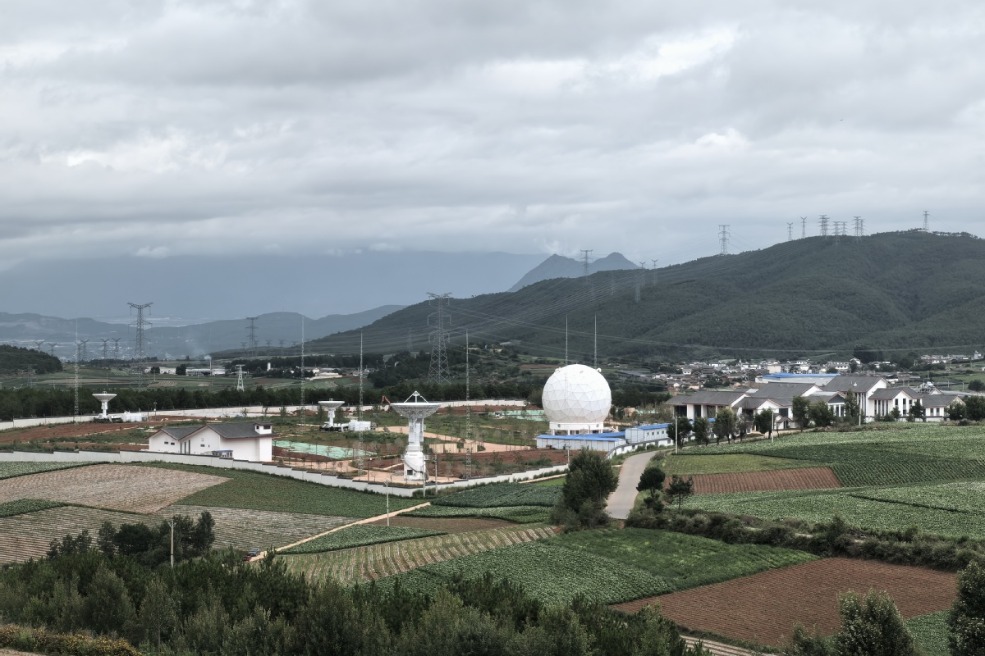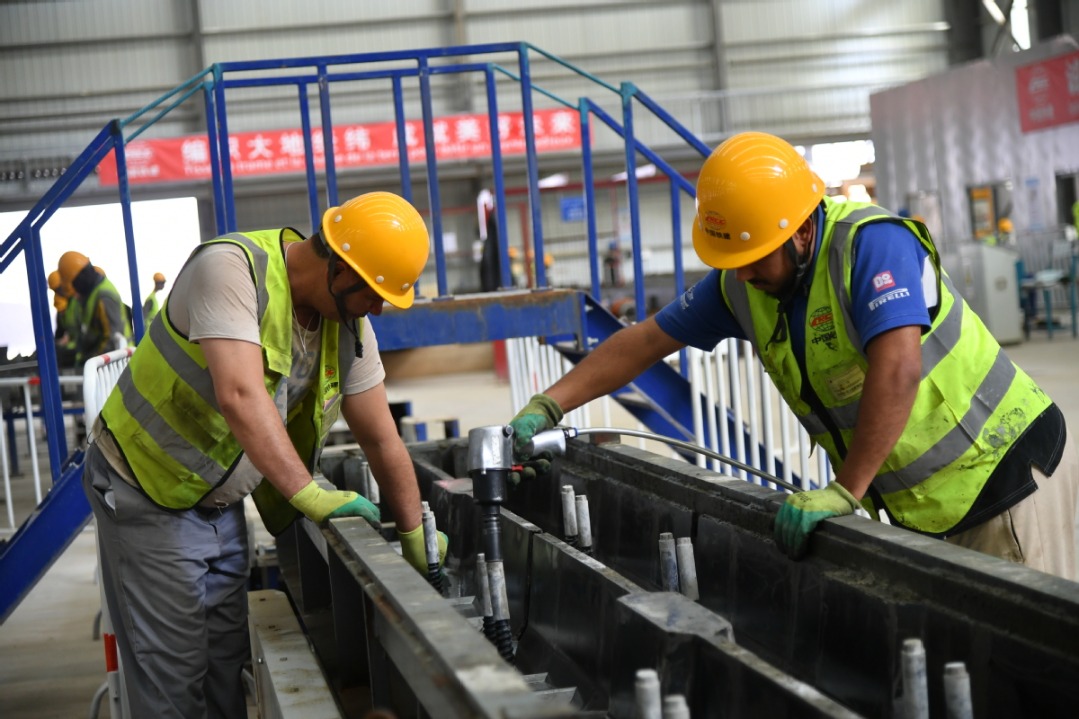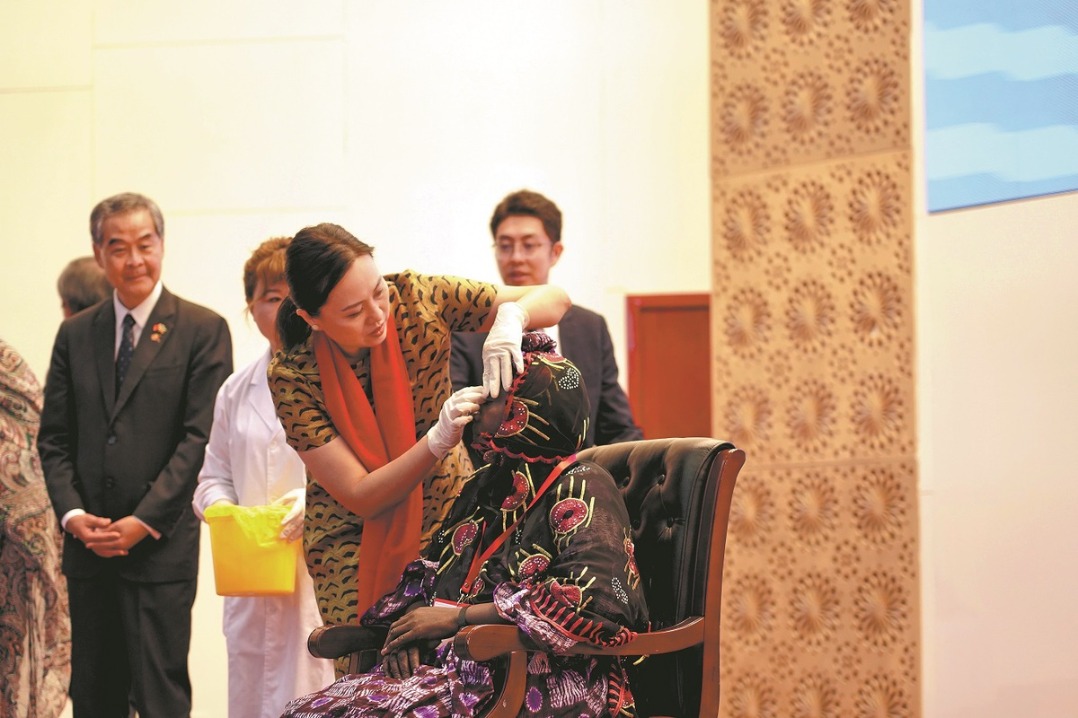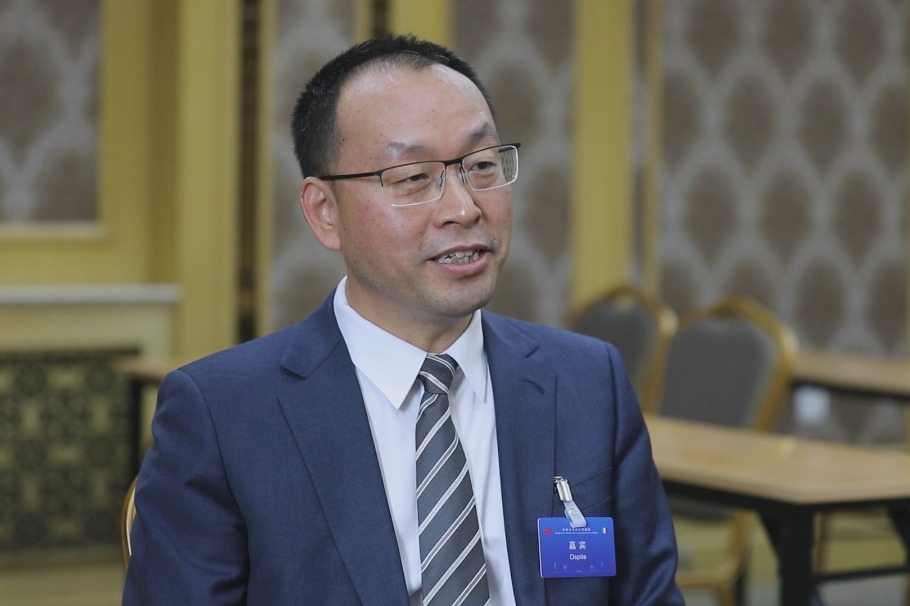Small Zhejiang township embraces green future


Years of biological conservation efforts have not only made Longguan township in Ningbo, Zhejiang province, the nation's first biodiversity-friendly town, but have also contributed to its rural vitalization and common prosperity.
Surrounded by mountains, Longguan is rich in biological resources. But it once faced a severe challenge: decades of industrial practices had resulted in a deterioration of its environmental quality.
To tackle the problem, the local government decided to develop a green economy in the township and highlighted environmental conservation as a precondition for all construction work starting in 2007. Since then, it has become widely known that ecological protection is a top priority for Longguan.
Now, forest protection is stressed in the construction of mountain roads; walking trails are made of wood and soil instead of cement to avoid damaging the living environment of animals; observation decks and walkways are built on stilts to reduce habitat destruction; and the use of dams is limited in rivers to protect fish.
Various facilities have been built around the township to offer sustainable habitats for animals.
To date, more than 20 conservation bases have been built in Longguan for plants such as ferns and isoetes, and more than 300 artificial nests, bushes and "insect hostels" have been established in forests. Forests currently cover 85 percent of the 73-square-kilometer township, and 25 species of animals and plants living here are under State-level protection.
Perhaps more significantly, Longguan has also achieved a balance between environmental protection and economic development.
In 2015, Li'ao village in Longguan built itself into what was then China's largest photovoltaic village. With photovoltaic panels installed on the rooftops of many houses in the village, each household could use 50 kilowatt-hours of power for free every month. The annual earnings created by the clean energy surpassed 600,000 yuan ($86,000).
Some of the profits are donated to the "Sunshine Fund". The fund, launched by the village, is used as reward for villagers who are admitted to college, join the army or get married, and provides subsidies for those who are in need.
"It was unbelievable that the rooftops can generate income for the village," said Hong Guonian, Party branch secretary of Li'ao.
Over the past seven years, the practice has been promoted in three other villages in Longguan, leading to the reduction of 4,486 metric tons of carbon dioxide emissions and 135 metric tons of sulfur dioxide emissions each year.
According to Shi Hengfeng, deputy head of Longguan, a rural vitalization company was also established in the township to make full use of the resources of its villages and achieve common prosperity among the residents.
"We plan to install photovoltaic panels on rooftops in all 10 villages in Longguan in two years," Shi said.
In addition, zero-carbon approaches will be expanded to other industries, including agriculture and culture and tourism.
"It will be a 'land of hope'," Shi added.
Although a small town, Longguan has set an example both at home and abroad.
In June, it was designated as China's first biodiversity-friendly township by the Ministry of Ecology and Environment.
On Dec 9, Yu Ting, Party secretary of Longguan, released the Guidelines for Biodiversity-friendly Township Planning at a subforum of the second phase of the 15th Conference of the Parties, or COP15, to the United Nations Convention on Biodiversity in Montreal, Canada. Seventy-five representatives and scholars from 18 countries attended the event.
Josip Pervan, an official from the World Business Council for Sustainable Development, suggested countries around the world take a page from Longguan's achievements.
Yu Yin contributed to this story.
mazhenhuan@chinadaily.com.cn
- Nation's space shuttle set to improve efficiency, cut costs
- China's new Preschool Education Law defines types of bans on individuals
- Heavy snowfall hits northern Xinjiang, fog and smog sweep north-central regions
- Eggs from Ningxia make fast, cool trip to Hong Kong
- Cultural tourism blooms in Greater Huangshan Region
- China's large neutrino observatory nears completion





































